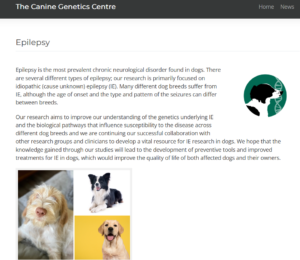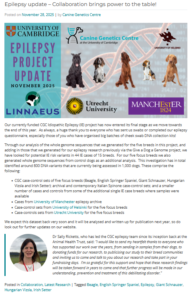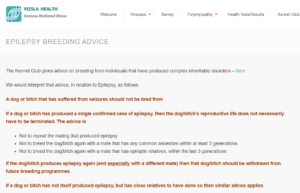Along with other breeds the vizsla may be affected by Epilepsy. The 2021 UK Kennel Club Breed Health and Conservation Plan confirms the vizsla’s predisposition, on the basis of US and Australian studies. The purpose of this page is to provide information and advice on breeding
What is Epilepsy
Epilepsy is a chronic condition that causes repeated seizures. Your vet may suspect that your dog has epilepsy if they have at least two unprovoked seizures more than 24 hours apart



